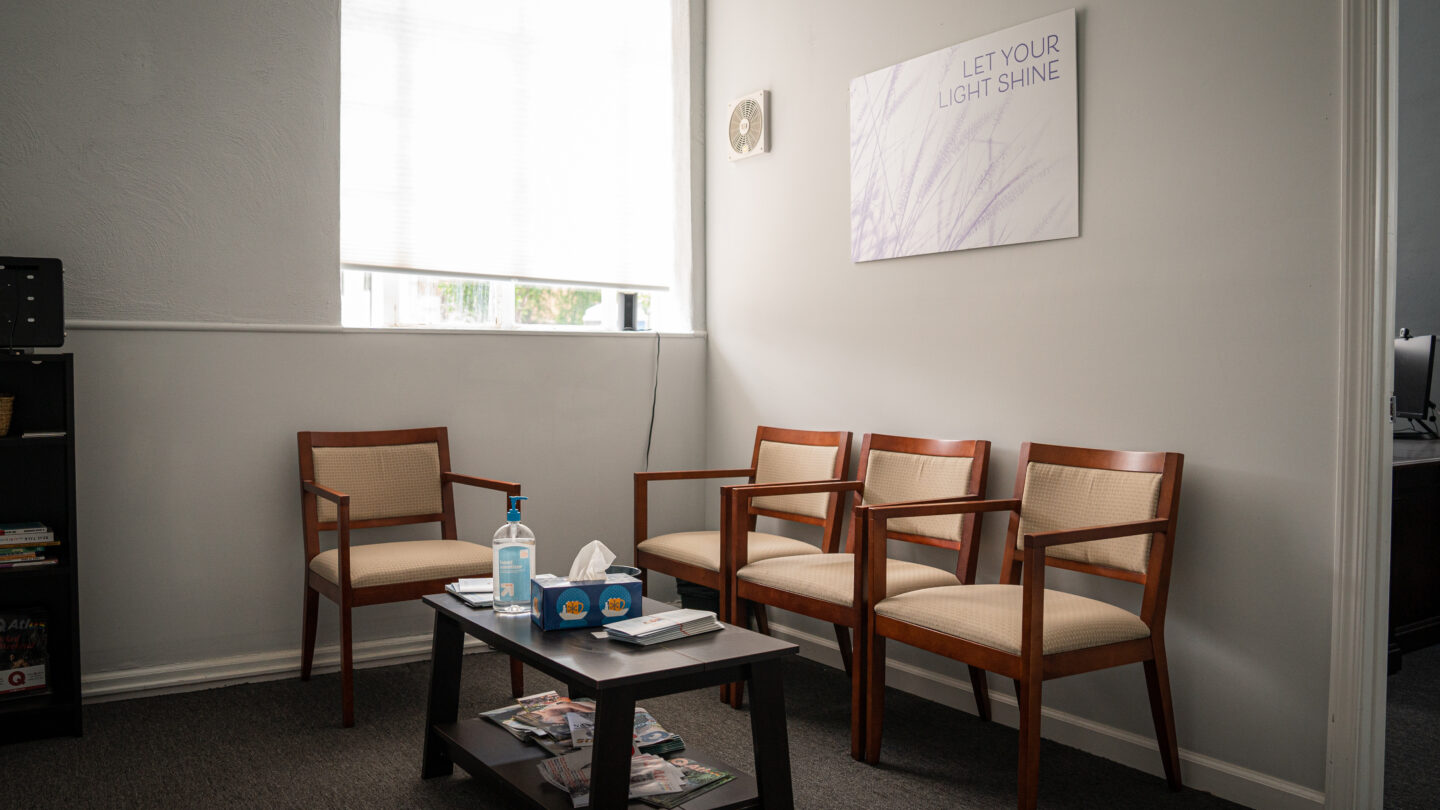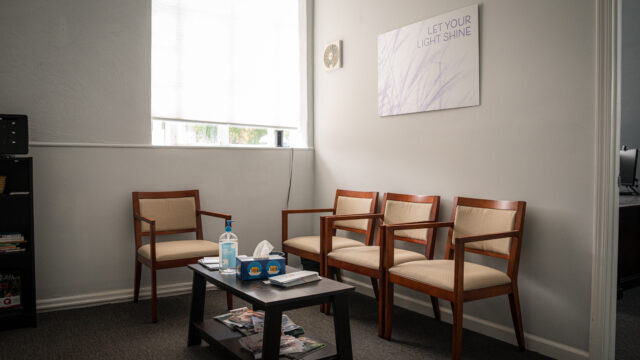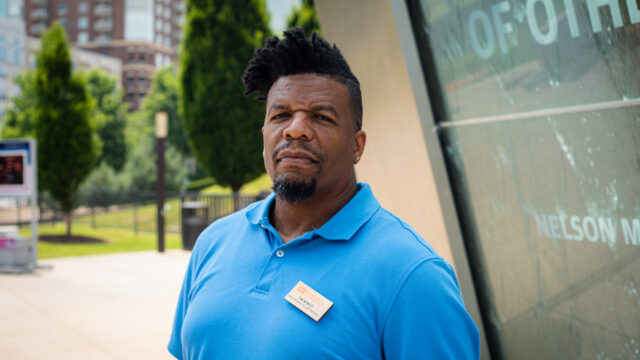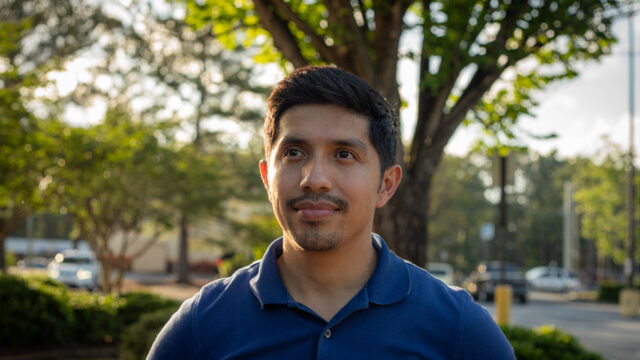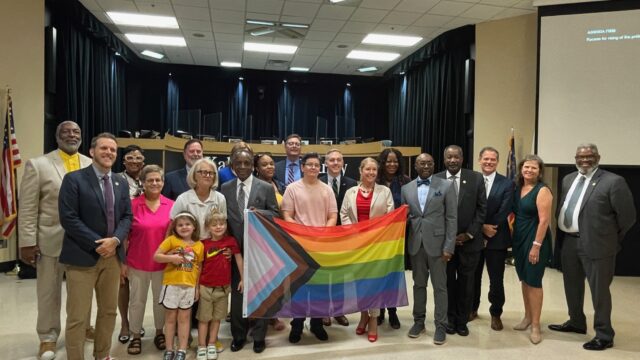D. just finished 7th grade. She has a lot of friends and says she wants to hang out with them as much as she can this summer, in between volleyball, soccer and trips with her family. While D. has been counting the days until summer, she is also thinking about another upcoming date, July 1.
That’s when Georgia will begin blocking transgender kids like D. from starting hormone replacement therapy. This spring, Republican lawmakers voted to restrict the treatment and also prohibit gender-affirming surgery for minors.
With SB 140 set to take effect in a few weeks, teens, parents and doctors are grappling with how the new rules will affect their lives.
D. says she felt more like a girl since she was little, though that’s not what her birth certificate said. We’re not identifying her for safety reasons. When D. got older, she started doing some research and learned about medical treatments that could help affirm her gender identity.
“It kind of opened my eyes a little, like, ‘Oh, this is an option, and I really think it’s for me,” D. says, sitting on a picnic table in a leafy neighborhood park with her mom, Amy.
“I was like, ‘Instead of being a dad, I could be a mom.’ And that was really happy to me.”
“You know your child. And when you see them looking in the mirror and telling you what they want to see and who they want to be and it being blocked, you feel powerless.”
Amy, mother of transgender Georgia child D., on the law set to take effect that will restrict gender-affirming care for minors.
School had been rough for a while. D. got bullied for things like which bathroom she used. Her mom says that was painful to watch.
“She’s sunshine, she always has been,” Amy says. “And when you see the loss of light in your child’s eyes and you just see them crying every night…”
After discussion, research, therapy and doctor visits, D. started puberty blockers a few months ago. But as that was getting underway, Georgia lawmakers began debating SB 140. The law allows puberty blockers, but bans minors from starting hormone therapy after July 1.
The law’s Republican supporters said they wanted to protect minors from treatments they may later regret.
“My mom sent me the law information and I come out in the living room crying,” D. says. “And I’m like, ‘I don’t want to wait until I’m 18. That’s unfair for me.”
Puberty blockers pause puberty, but there can be health effects of doing that too long.
Hormone therapy, the next step, allows trans kids to go through puberty that matches their gender identity. D. wants to grow up alongside her peers and says 18 is too late.
“I think that everything would just shut down, not being able to be who I want to be, grow up how I want to grow up,” D. says.
“You know your child,” Amy says. “And when you see them looking in the mirror and telling you what they want to see and who they want to be and it being blocked, you feel powerless.”

D. and her parents are now weighing what to do next.
“Having the set day of July 1st, it pushes us to make a decision faster than we want,” Amy says. “Yes, we weigh the pros and the cons every single day, every single conversation.”
Conversations like these are happening in many Georgia houses. Amy belongs to a group for parents of trans kids, where she says July 1 is on everyone’s mind.
At least one Georgia family has moved out of state since SB 140 was signed into law. Others say they’re considering it, especially families with young trans children. Some families fear Georgia will pass even stricter laws, like other states have done this year.
All this is complicated for providers like Dr. Izzy Lowell.
“This isn’t what I thought it would look like, but I went into medicine to help people and to save lives,” Lowell says.
Lowell specializes in treating transgender patients at QueerMed, her practice near Atlanta. She is licensed in more than 20 states and has an army of lawyers to help her navigate the rapidly changing patchwork of state laws.
“I asked my Florida lawyer, ‘Can I do this specific thing as of today, and it took days to figure out whether I could do that thing on that day, and by then it was potentially out of date,” Lowell says. “So it’s been extraordinarily difficult, if not impossible, to keep up with these laws, even in one state.”
“Me and my providers will be up until midnight on June 30 seeing patients to get them in before the deadline.”
Dr. Izzy Lowell of QueerMed, an Atlanta-area medical practice that specializes in treating transgender patients.
Lowell’s purple office is mostly empty these days. They are seeing many patients virtually for safety reasons and because some live in states where treatment is restricted.
Sometimes, families travel across state lines to a pop-up clinic or find a parking lot just over the border where care is legal and log on for a telehealth visit from their car.
Abortion providers have adopted similar workarounds since many states have moved to restrict abortion access after the U.S. Supreme Court struck down Roe v. Wade last year.
“I hope we look back on this as this brief period when we just took a wrong turn as a country,” Lowell says. “It’s taken a real toll on two of my wonderful young teens who have been thriving under treatment. And they both were so distressed by this [law] that they committed self-harm.”
WABE couldn’t verify the details due to health privacy laws, but Lowell says the two teens survived. Lowell says she will continue to do all she can to provide care within the confines of the law.
“Me and my providers will be up until midnight on June 30 seeing patients to get them in before the deadline,” she says.
As for D., she says she’s determined to face this latest obstacle head-on.
“I think people are going to push out the law, or like, there’s ways around it,” she says. “So I don’t think that [lawmakers] are going to get exactly what they want.”
For now, D. says she’s dreaming of the beach, and maybe moving to a bigger city. She is also focused on friends, sports, camp — just being a kid on the cusp of growing up.
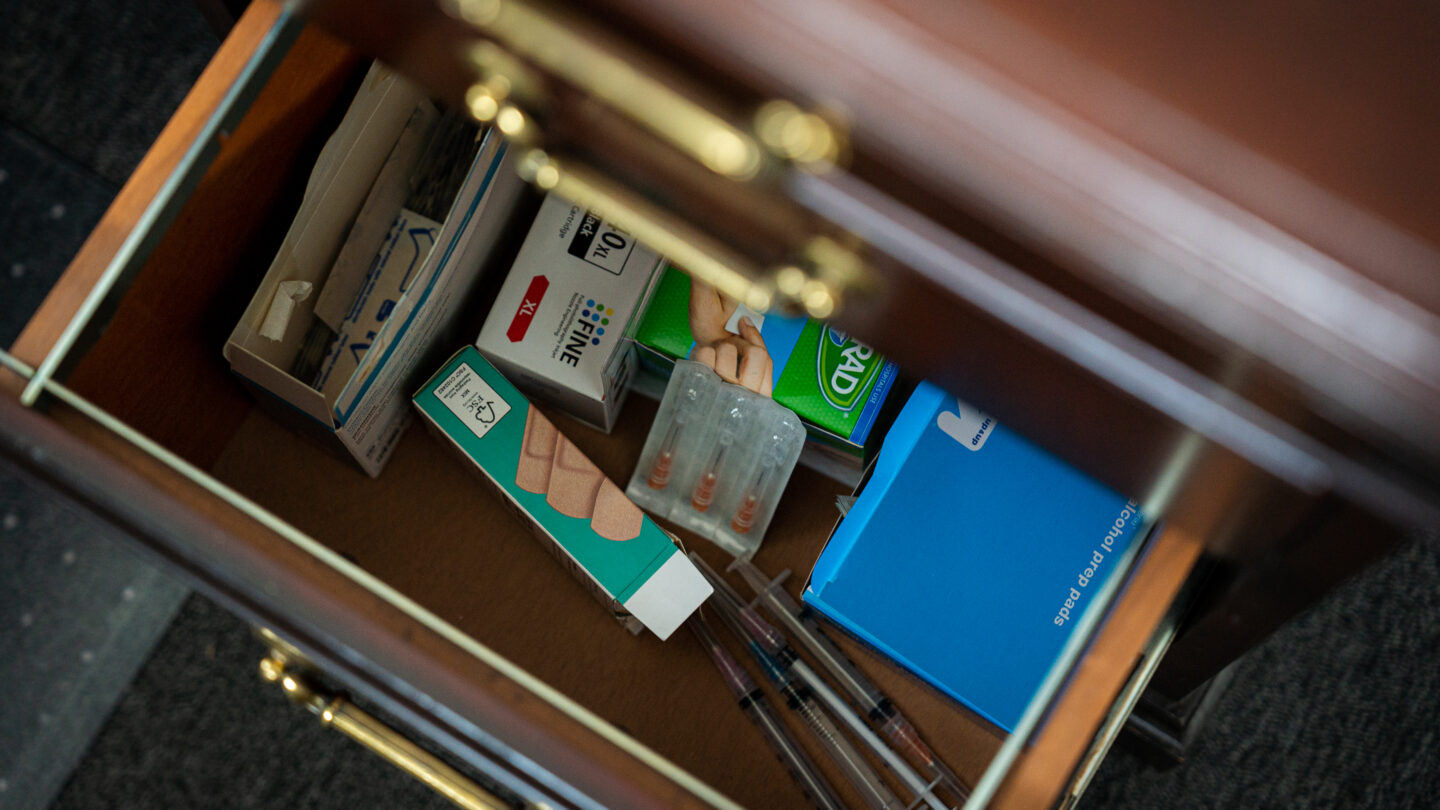
This story is part of the ongoing series Beyond Pride, in which WABE reporters take a deeper look at the issues affecting LGBTQ people in Georgia. Plus, hear LGBTQ Atlantans in their own words, check out a Pride events calendar running through the fall, LGBTQ coverage from other NPR stations across the South and more.
